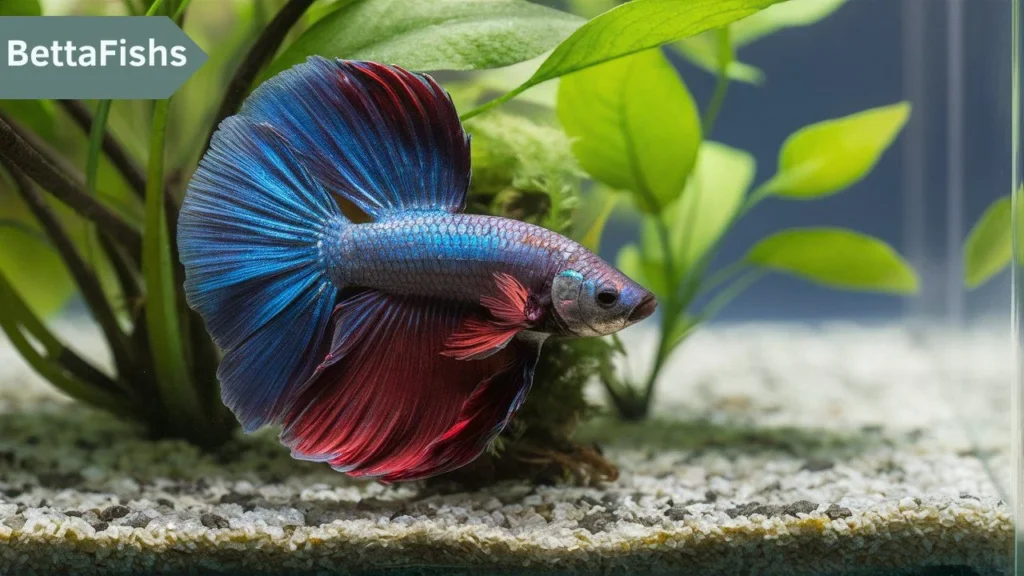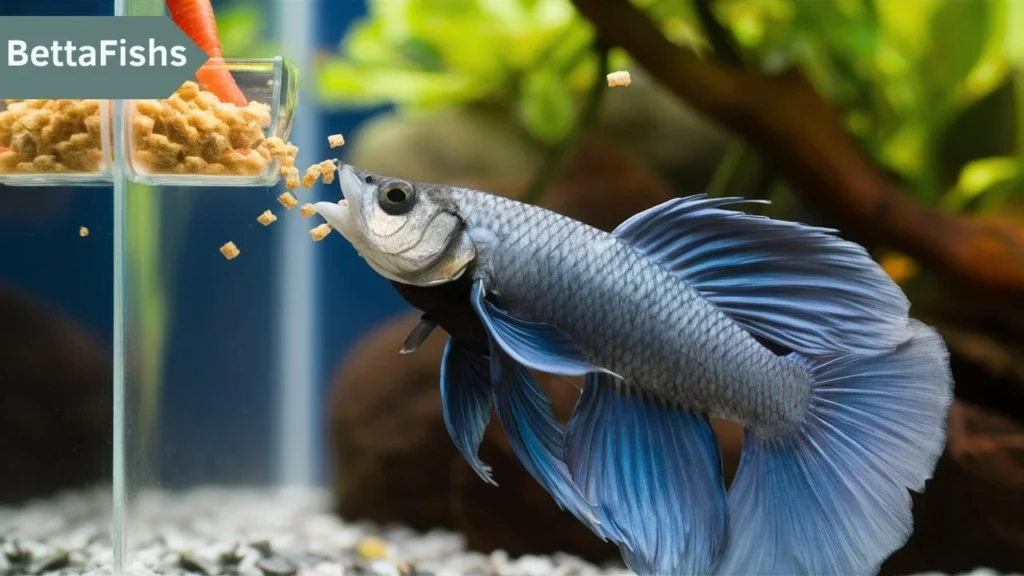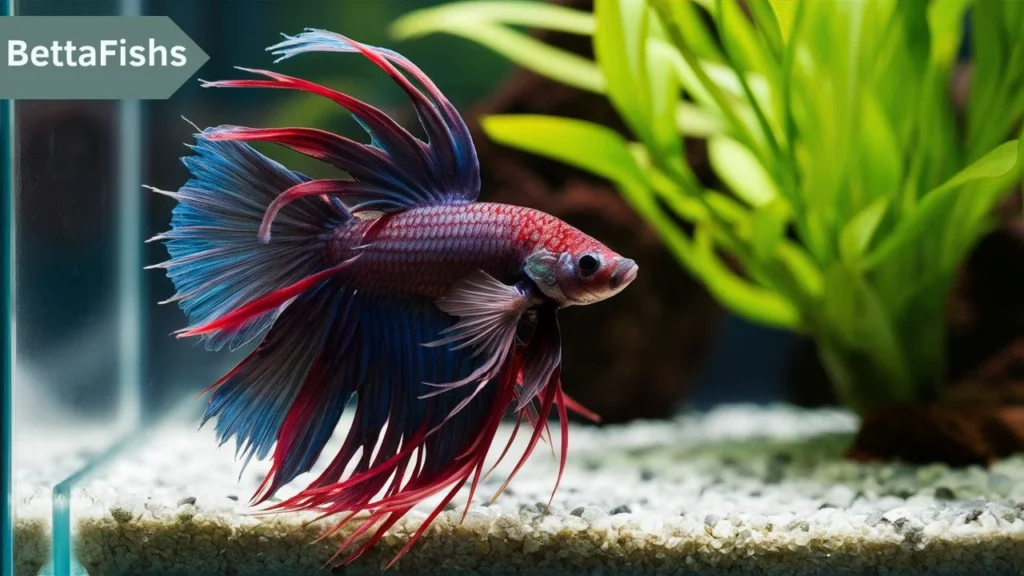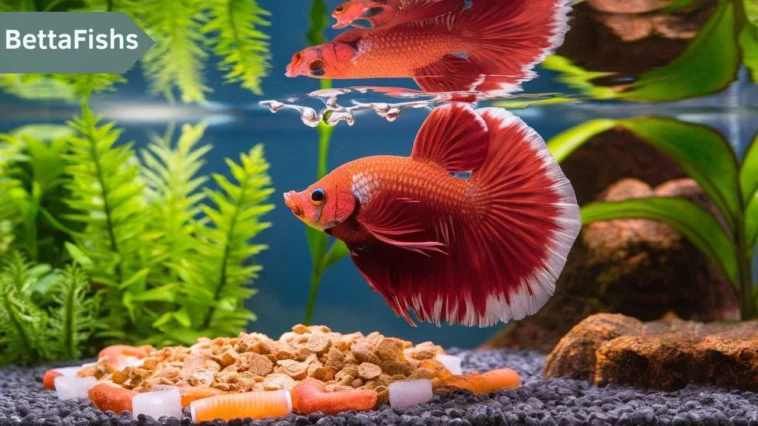Betta fish, also known as Siamese fighting fish, are one of the most popular pets in the aquarium hobby. Their striking colors and captivating personalities make them a favorite among fish enthusiasts. But before we dive into the world of Betta fish names, let’s explore what makes these little creatures so special.
Origin and Natural Habitat
Originally from the warm waters of Southeast Asia, Betta fish are accustomed to living in shallow, slow-moving bodies of water like rice paddies, ponds, and marshes. These environments have shaped low-oxygen waters, thanks to a special organ called the labyrinth, which allows them to breathe air directly from the surface.
Physical Characteristics
The striking fins and vivid colors of betta fish are well-known. These features not only make them stand out in an aquarium but also serve as an expression.
Vibrant Colors
One of the most captivating aspects of Betta fish is their incredible range of colors. These hues can range from deep blues and reds to bright yellows, oranges, and even metallic shades like gold and silver. The color of a Betta can also change depending on its mood, health, and age. For instance, a healthy, well-cared-for Betta will often display more vibrant colors.
Distinctive Fins
Betta fish are also recognized for their elaborate fins, which can vary in shape and size. Some Betta varieties have long, flowing fins that give them a regal appearance, while others have shorter, more compact fins that make them look sleek and agile. These fins, however, are not just for show; they play a crucial role in the Betta’s swimming abilities and overall health.

Choosing the Right Name for Your Betta
Naming your Betta fish is an exciting part of welcoming this new pet into your home. The right name can reflect your Betta’s unique appearance, personality, or even your favorite characters from books, movies, or mythology.
Importance of Naming Your Betta
Naming your Betta fish is more than just a fun activity; it’s a way to bond with your new pet. Just like naming a dog or cat, giving your Betta a name helps establish a personal connection and can make the experience of caring for them more rewarding.
Bonding Through Naming
When you name your Betta, you’re not just assigning them an identity; you’re also creating a bond that can make interactions more meaningful. Whether you’re feeding them, cleaning their tank, or simply watching them swim, calling them by name can enhance your relationship with your fish.
Factors to Consider
Choosing a name for your Betta involves considering various factors, such as their appearance, personality, and even their gender. Here’s a closer look at how each of these factors can influence your decision.
Betta’s Color and Appearance
The color of your Betta can be a significant inspiration when naming them. For instance, a Betta with deep blue scales might be named “Sapphire” or “Ocean,” while a bright red Betta could be called “Ruby” or “Blaze.” The possibilities are endless, and you can have fun matching your Betta’s name to their striking appearance.
Personality Traits
Betta fish are known for their distinct personalities. Some are more active and playful, while others may be calm and reserved. Observing your Betta’s behavior can provide clues for a fitting name. For example, a particularly feisty Betta might be named “Spartan,” while a more relaxed one could be called “Zen.”
Gender of the Betta
While many Betta names are unisex, you might prefer to choose a name that reflects the gender of your fish. Male Bettas, known for their larger and more colorful fins, could be given names like “King” or “Apollo,” while female Bettas, which tend to have shorter fins, might be named “Queen” or “Luna.”
Popular Betta Fish Names
There are countless names you can choose for your Betta fish. Here are some popular categories to consider:
Names Based on Color
- Blue Bettas: “Sapphire,” “Indigo,” “Ocean”
- Red Bettas: “Ruby,” “Blaze,” “Crimson”
- Yellow Bettas: “Sunny,” “Goldie,” “Daffodil”
Names Based on Behavior
- Active Bettas: “Dash,” “Zippy,” “Flash”
- Calm Bettas: “Zen,” “Mellow,” “Chill”
- Feisty Bettas: “Spartan,” “Thor,” “Titan”
Unisex Names
- Nature-Inspired: “River,” “Sky,” “Leaf”
- Mythological: “Phoenix,” “Zephyr,” “Echo”
- Unique: “Nova,” “Pixel,” “Jinx”

Caring for Your Betta Fish
Owning a Betta fish involves more than just choosing a great name. Proper care is essential to keep your Betta healthy and happy. Here’s what you need to know about setting up their tank, feeding them, and maintaining their health.
Tank Setup
Your Betta’s tank is their home, and creating the right environment is crucial for their well-being.
Ideal Tank Size
While Betta fish are often sold in small cups or bowls, they actually need more space to thrive. A tank size of at least 5 gallons is recommended to provide ample room for swimming and exploration. This also helps maintain stable water conditions, which are vital for your Betta’s health.
Water Conditions
Betta fish are tropical creatures, so they require warm water with a temperature between 76°F and 82°F (24°C to 28°C). Using a heater and thermometer can help maintain this temperature range. Additionally, the water should be kept clean and free of harmful chemicals, which can be achieved through regular water changes and using a good quality water conditioner.
Feeding Your Betta
Feeding your Betta fish the right diet is key to their health and longevity.
Types of Food
Since betta fish are carnivores, they need a diet high in protein to survive. High-quality Betta pellets or flakes, supplemented with freeze-dried or frozen foods like bloodworms or brine shrimp, are ideal. It’s important to choose food specifically formulated for Betta fish to ensure they get the nutrients they need.
Feeding Schedule
Overfeeding is a common issue with Betta fish, which can lead to health problems like bloating or constipation. It’s best to feed your Betta small amounts once or twice a day, ensuring they can consume all the food within a few minutes.
Health and Maintenance
Keeping an eye on your Betta’s health and maintaining their tank is crucial for preventing illness.
Common Health Issues
Betta fish can be prone to certain health issues, such as fin rot, ich, and swim bladder disease. Recognizing the symptoms early, such as clamped fins, white spots, or difficulty swimming, can help you address these problems before they become severe.
Preventative Care
Regular maintenance, including weekly water changes and monitoring water parameters, is essential for keeping your Betta healthy. Additionally, providing a stress-free environment by avoiding sudden changes in their surroundings can prevent many common health issues.

Conclusion
The Joy of Owning a Betta Fish
Betta fish are more than just beautiful creatures; they are fascinating pets with unique personalities. By choosing the right name and providing proper care, you can ensure your Betta lives a long, healthy, and happy life.
Final Thoughts on Naming Your Betta
Naming your Betta is a personal and enjoyable experience. Whether you choose a name based on their appearance, behavior, or something completely unique, the right name can make your Betta feel like a true part of the family.
FAQs
What is the best tank size for a Betta fish?
The best tank size for a Betta fish is at least 5 gallons, which provides ample space for swimming and helps maintain stable water conditions.
How often should I feed my Betta fish?
You should feed your Betta fish once or twice a day, providing only as much food as they can consume in a few minutes to prevent overfeeding.
Can Betta fish live with other fish?
Betta fish can live with certain types of peaceful fish, but it’s important to avoid tank mates that may provoke aggression or have similar colorful, flowing fins.
How can I tell if my Betta fish is happy?
A happy Betta fish will display vibrant colors, swim actively, and interact with their environment. They will also eat regularly and show curiosity.
What are some unique names for Betta fish?
Some unique names for Betta fish include “Nova,” “Phoenix,” “Zephyr,” “Echo,” and “Jinx.”





Toller Beitrag! Ich habe viel Neues erfahren.
Super article, facile à suivre et plein de bons conseils.